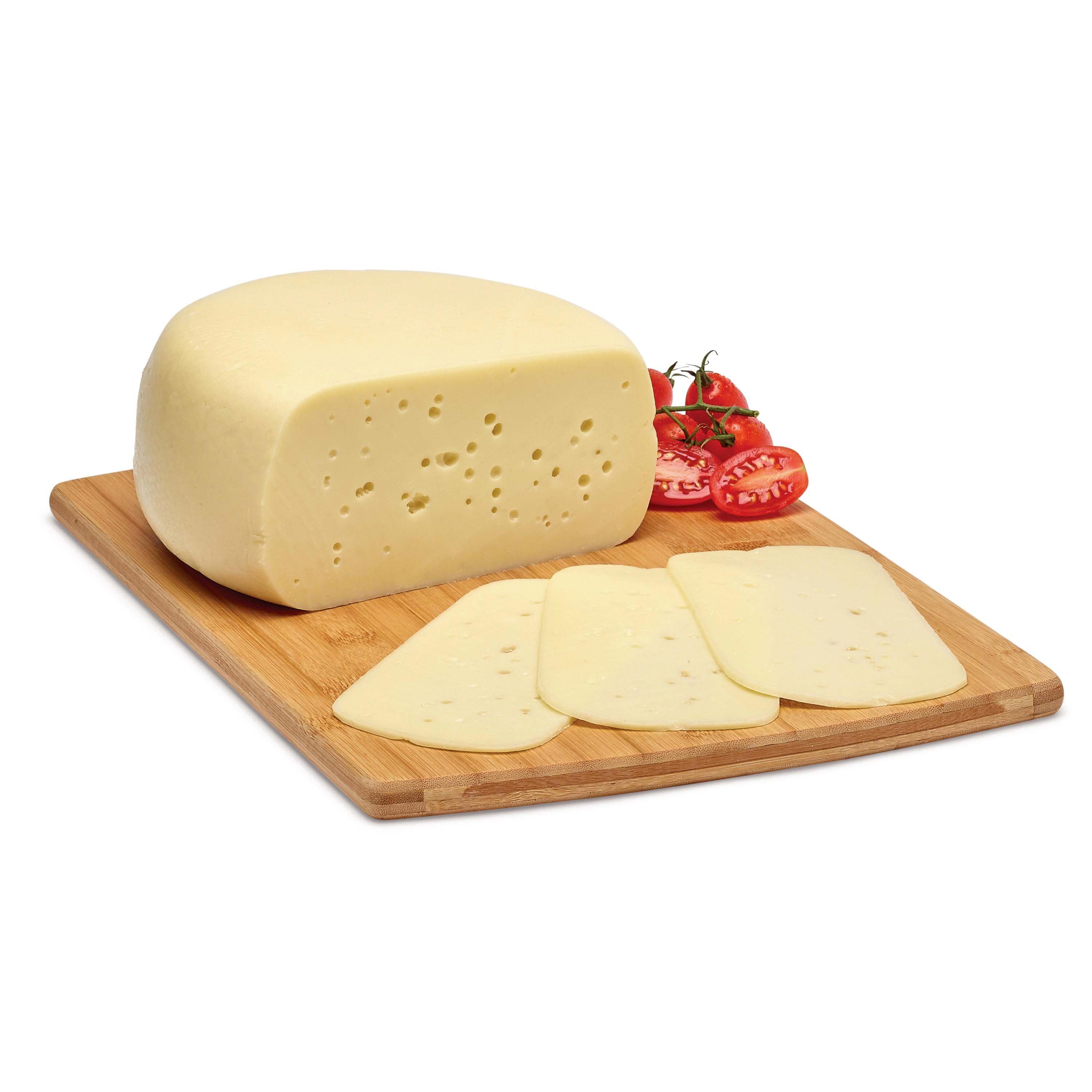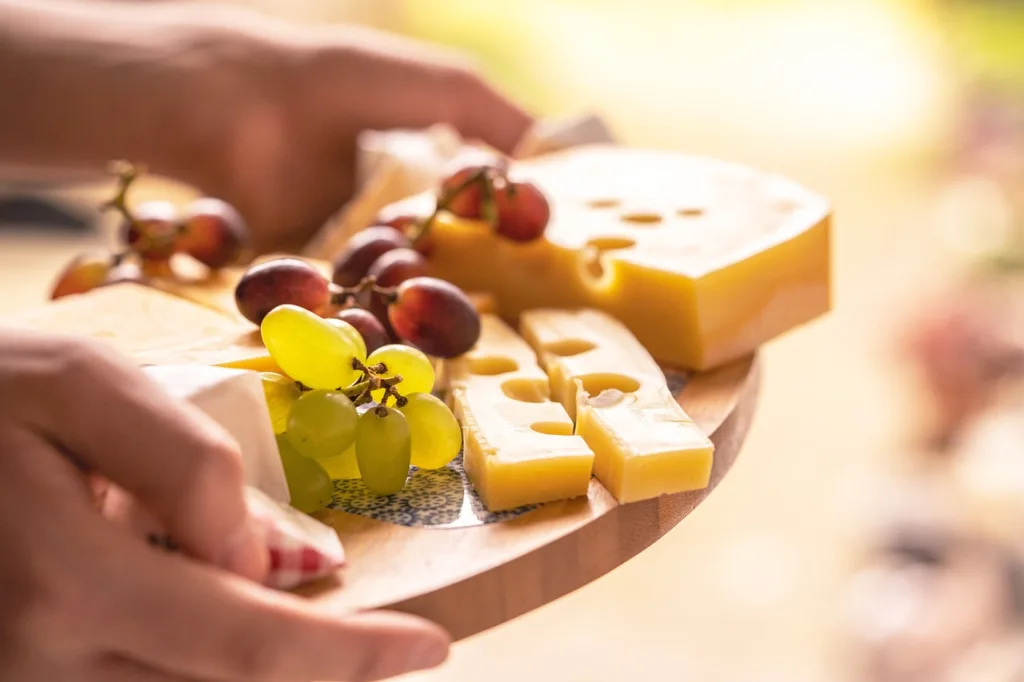Swiss cheese is a popular cheese variety that originated in Switzerland. It’s a semi-hard cheese with a pale yellow color and distinctive holes or “eyes” throughout the cheese. Swiss cheese has a nutty, slightly sweet flavor that is oftn enjoyed on sandwiches or melted over hot dishes.
Baby Swiss cheese, on the other hand, is a variation of Swiss cheese that is milder in flavor and creamier in texture. It is produced in smaller wheels and has a more consistent texture with smaller holes. Baby Swiss is aged for about a month, while traditional Swiss cheese is aged for anywhere from two months to many years.
The difference in flavor between Swiss and Baby Swiss cheese can be attributed to the aging process. The longer aging process of Swiss cheese allows for a more pronounced flavor and a firmer texture, while the shorter aging process of Baby Swiss results in a milder flavor and a creamier texture.
When it comes to cooking, both Swiss and Baby Swiss cheese are versatile and can be used in a variety of dishes. They both melt well and are often used in recipes that call for melted cheese, such as grilled cheese sandwiches or macaroni and cheese.
However, Swiss cheese is often preferred for dishes that require a stronger cheese flavor, such as fondue or French onion soup. Baby Swiss cheese, on the other hand, is a great choice for those who prefer a milder cheese flavor or for recipes that require a creamier texture, such as quiches or omelets.
Swiss cheese and Baby Swiss cheese are both delicious cheese varieties with their own unique characteristics. Swiss cheese has a stronger flavor and firmer texture, while Baby Swiss cheese is milder and creamier. Both cheeses are versatile and can be used in a variety of dishes, making them a great addition to any cheese board or recipe.
Is Swiss Or Baby Swiss Better?
When it comes to Swiss cheese, the main difference between regular Swiss and Baby Swiss lies in their flavor, texture, and appearance. Baby Swiss is a more delicate, smoother, and creamier version of Swiss cheese. It has smaller holes and a milder flavor than its counterpart, making it a popular choice for those who enjoy a less pronounced taste. In contrast, regular Swiss cheese has a firmer texture, larger holes, and a nuttier flavor that can be more assertive.
So, which one is better depends on personal preference and the intended use. If you prefer a milder taste and creamier texture, then Baby Swiss may be the better choice for you. It also works well in sandwiches and burgers, as it melts easily and adds a subtle flavor. Whereas, if you want a cheese with a more pronounced flavor and a firmer texture, then regular Swiss cheese may be the better option, especially for cooking dishes like fondue.
Ultimately, both Swiss and Baby Swiss cheese are delicious and versatile, so it’s worth tryig them both to determine which one you prefer.

Which Has More Flavor Swiss Or Baby Swiss?
When comparing Swiss cheese and Baby Swiss cheese, it can be noted that Baby Swiss has a milder flavor than Swiss cheese. Swiss cheese, also known as Emmental cheese, has a distinct, nutty flavor that is slightly sweet and savory. It is a semi-hard cheese with large, distinctive holes in it. On the othr hand, Baby Swiss is a variation of Swiss cheese that is made using a similar process but has a shorter aging period. This results in a cheese that is smoother and creamier with a less pronounced flavor than traditional Swiss cheese. Therefore, if you prefer a milder cheese, Baby Swiss may be a better option for you, but if you enjoy a more robust cheese flavor, Swiss cheese may be the better choice.
What’s The Difference Between Aged Swiss And Baby Swiss?
Aged Swiss and Baby Swiss are two types of Swiss cheese that differ in their aging process, texture, and flavor. Aged Swiss cheese is matured for a longer period of time, usually ranging from two months to seveal years, which results in a firmer texture and a sharper, nuttier flavor. In contrast, Baby Swiss cheese is aged for only about a month, giving it a creamier texture and a milder, nutty flavor. Baby Swiss cheese also has smaller holes and a more consistent texture compared to Aged Swiss cheese. Additionally, due to its softer texture, Baby Swiss cheese is ideal for melting and is often used in dishes such as grilled cheese sandwiches or fondue. while both types of Swiss cheese share similarities, their differences lie in their aging process, texture, and flavor profile.
Which Swiss Cheese Has The Strongest Flavor?
Appenzeller is the Swiss cheese that has the strongest flavor. This cheese is made using a secret herbal brine consisting of wine, cider, and spices, which imparts a spicy flavor to it. Among all the Swiss cheeses, Appenzeller stands out for its distinct taste. The cheese is known for its sharp and tangy flavor, which makes it a popular choice for cheese lovers around the world. The use of a secret herbal brine sets Appenzeller apart from other Swiss cheeses and makes it a unique and flavorful option for those who enjoy strong-tasting cheeses.

Conclusion
Swiss cheese and Baby Swiss cheese may seem similar, but they have notable differences in flavor, texture, and aging process. Swiss cheese has a stronger, nuttier flavor due to its longer aging process, while Baby Swiss cheese has a milder, creamier taste. Baby Swiss cheese is also smoother with smaller holes and is aged for a shorter period of time. Both cheeses have their unique characteristics and can be used in various dishes, depending on personal preference. Whether you prefer a stronger or milder flavor, Swiss and Baby Swiss cheese are both delicious options to add to your cheese board or incorporate into your recipes.
